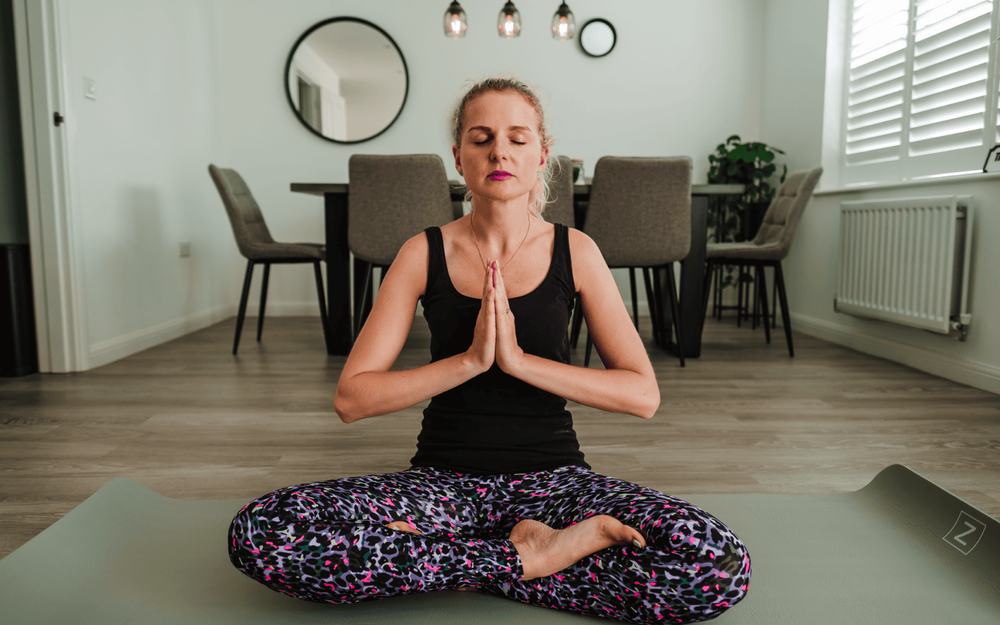
Menopause and Insomnia
Many women experience periods of poor sleep or insomnia during the various stages of menopause. Poor sleep can negatively impact overall health and well-being and worsen common menopause symptoms like low mood. Taking proactive action to address your sleep challenges is important for your physical and mental wellbeing.
Below, we explore the link between menopause and insomnia in greater detail, share details about possible treatment options, and explain how an Advanced Menopause Profile can help provide vital insights into your hormonal health.
Why are menopause and insomnia linked?
Menopause is the term used to describe the time in a woman’s life when her periods stop due to declining oestrogen levels. For most women, this is usually between the ages of 45-55.
The link between sleep and menopause is complex. Insomnia is often caused by a decline in the hormone levels oestrogen and progesterone. However, menopause symptoms such as night sweats, hot flashes and increased feelings of anxiety also play a role in disrupting normal sleeping patterns.
Our guide to ‘What is menopause?’ provides more information about menopause, including common symptoms and treatment options.
Types of sleep disturbance
The types of menopause and sleep disturbances women may experience will vary but typically include:
- Difficulty getting to sleep
- Difficulty staying asleep
- Early morning waking
- Less time asleep
- Quality of sleep (waking feeling unrestored)
- Feeling sleepy or fatigued throughout the day
How does menopause affect sleep?
Menopause and many of its symptoms can affect your sleep in various ways, including:
Hot flashes/night sweats
Hot flashes, when women experience sensations of extreme heat, and night sweats when women wake up due to intense sweating, can lead to disturbed sleep.
Although many women feel like a hot flash has woken them up, it is thought that the changes that take place in the body before a hot flash may be what actually triggers the awakening.
Either way, waking up multiple times throughout the night can lead to you feeling tired the next day, and when this happens night after night, it can negatively impact your health and impact your mood. Learn more about the importance of sleep.
Falling hormone levels
A decline in oestrogen and progesterone levels, as well as melatonin can all contribute to poor sleep quality. This is because these hormones all play a role in sleep regulation. Learn more about the link between hormone imbalances and sleep quality.
Sleep apnoea
The hormonal changes that cause menopause can also increase the risk of sleep apnoea.
Sleep apnoea is a sleep disorder that causes breathing to stop and start repeatedly while you sleep. Common symptoms include snoring, gasping for air while sleeping, daytime sleepiness, headaches in the morning, and acid reflux.
Restless leg syndrome
Restless leg syndrome is a condition that causes a sudden urge to move your legs and is often also accompanied by sensations like tingling or throbbing. It commonly affects people throughout the night and can lead to periods of wakefulness.
Restless leg syndrome is a common side effect of menopause due to fluctuating oestrogen levels and decreased dopamine levels.
Low mood/depression
Underlying mental health conditions, such as low mood or depression, can increase cortisol levels in your body, and this can impact your ability to sleep well.
How is insomnia during menopause treated?
When it comes to treating menopause and sleep problems, there are numerous treatment options available:
- Cognitive behaviour therapy (CBT) – CBT is a type of talking therapy that helps women recognise the patterns, behaviours and thoughts that may be affecting sleep, so they can make appropriate changes.
- Hormone therapy – Hormone replacement therapy (HRT) can help to improve sleep quality by stabilising oestrogen and progesterone levels in your body. HRT is available as topical creams or gels, patches or oral tablets.
- Hormonal birth control – like HRT, hormonal birth control can help to improve your sleep by stabilising key hormone levels.
- Antidepressants – if low mood is contributing to your insomnia, treating any underlying mental health conditions with antidepressants may be beneficial.
- Benzodiazepines – these medications have sedative and muscle-relaxing effects, which can help people get to sleep. However, they can have addictive properties, so doctors will often only prescribe them short-term, and it’s important to follow your doctor’s instructions on how to take them.
Lifestyle changes that can help reduce menopause-related insomnia
In addition to medical treatments, lifestyle changes can also help improve your sleep quality during menopause and beyond. Some of the best ways to boost your sleep quality include:
- Keeping your room cool improves your ability to fall and stay asleep throughout the night and helps counteract hot flashes and night sweats.
- Use low lighting a few hours before bed and avoid blue light from phone and TV screens, as this can make your brain more alert and reduce your ability to get to sleep.
- Using relaxation techniques such as breathwork, yoga or taking a bath to help you calm your mind before attempting to get to sleep.
- Avoid looking at clocks throughout the night, as this can stimulate your brain and keep you awake.
- Eating earlier in the evening, ideally at least one hour before bed, so your body has time to digest your food before attempting to sleep.
- Having a regular sleep schedule with a set time to wake up and go to bed each evening.
Menopause and insomnia: how long does it last?
The duration of sleep problems during menopause can vary greatly from person to person. For some women, sleep disturbances may last only a few months, while for others, they can persist for several years.
Typically, insomnia linked to menopause may be most intense during the perimenopausal stage, when hormone levels are fluctuating the most. However, symptoms can continue into the postmenopausal years, although they may gradually improve as the body adjusts to lower hormone levels.
If you are struggling with insomnia during menopause, it’s important to seek guidance from a healthcare professional who can offer solutions to manage symptoms and improve your sleep quality.
Check your hormone health
If you think you may be experiencing menopause-related insomnia and are looking for some reassurance that menopause is the cause, why not book a private Advanced Menopause Profile blood test?
At Bluecrest Wellness, our complete female hormone package provides comprehensive insights into five key female hormones as well as a private GP consultation to discuss your symptoms to help determine if you are experiencing menopause. The package can also be beneficial to those on HRT for menopause, giving insights that enable you to plan and adjust treatment to your bespoke needs.
We offer appointments across the UK, so you can book a private hormone profile blood test at a time and location to suit you. Plus, you can be confident that we will deliver fast, efficient and accurate results as we have established links with leading UK laboratories and are fully accredited for a wide range of private blood checks.
BOOK A PRIVATE ADVANCED MENOPAUSE PROFILE TEST TODAY













